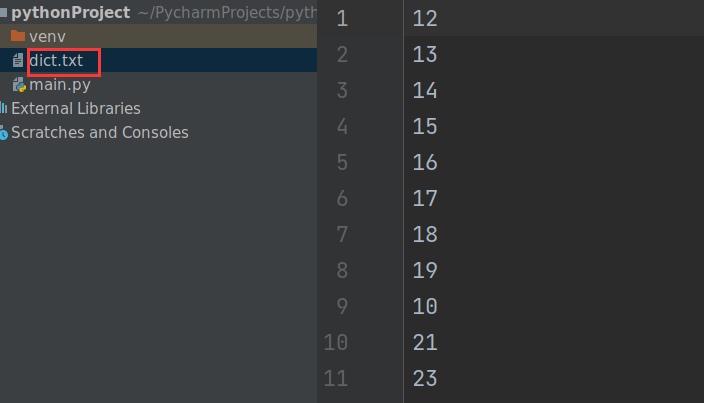16.加密解密基础
base64
import base64
def main():
s = "haha123"
bs = base64.b64encode(s.encode('utf-8'))
print(bs) //b'aGFoYTEyMw=='
print(bs.decode('utf-8')) # aGFoYTEyMw==
s1 = "aGFoYTEyMw=="
bs1 = str(base64.b64decode(s1),"utf-8")
print(bs1) # haha123
DES
加密需要key且必须为8个字节(8位),之后会选择模式,使用ECB模式(电子密本方式,JAVA封装的DES算法的默认模式)
由于8字节容易被穷举,所以使用3DES加密,3DES长度为168位
安装库
pip install pycryptodome
pip install pycryptodomex
加密
from Cryptodome.Cipher import DES
import binascii
def main():
# 密钥,长度必须为8字节
key = b'abcdefgh'
# 创建一个DES对象
des = DES.new(key, DES.MODE_ECB)
# 密文
text = "haha123 nihao"
# 加密需要保证时8的倍数,不足用=补全
text = text + (8 - (len(text) % 8)) * '='
print(text) # haha123 nihao===
# 加密为十六进制
encrypt_text = des.encrypt(text.encode())
print(encrypt_text) # b"\x97%\xdf\xd2\x87\x87aX\\\x8a\x05\xabW\x1fY'"
# 通过binascii将十六进制转换ascii输出
encrypt_res = binascii.b2a_hex(encrypt_text)
print(encrypt_res) # b'9725dfd2878761585c8a05ab571f5927'
解密
from Cryptodome.Cipher import DES
import binascii
def main():
key = b'abcdefgh'
des = DES.new(key, DES.MODE_ECB)
encrypto_res = b'9725dfd2878761585c8a05ab571f5927'
# 将ascii转换成十六进制
encrypt_text = binascii.a2b_hex(encrypto_res)
# 对十六进制数据进行解密
decrypt_text = des.decrypt(encrypt_text)
print(decrypt_text) # haha123 nihao===
AES
key长度必须是8的倍数,被加密的数据也要是8的倍数
加密
from Cryptodome.Cipher import AES
import binascii
def main():
key = b'abcdefghabcdefgh'
text = 'haha123 wocao'
text = text + (16 - (len(text) % 16)) * '='
print(text)
aes = AES.new(key, AES.MODE_ECB)
encrypt_text = aes.encrypt(text.encode())
encrypt_res = binascii.b2a_hex(encrypt_text)
print(encrypt_res)
解密
from Cryptodome.Cipher import AES
import binascii
def main():
key = b'abcdefghabcdefgh'
encrypt_res = b'5ff27bccfc1aa3c0335f2f21bb9f17db'
aes = AES.new(key, AES.MODE_ECB)
encrypt_text = binascii.a2b_hex(encrypt_res)
decrypt_text = aes.decrypt(encrypt_text)
print(decrypt_text)
MD5
加密
from hashlib import md5
def main():
# 创建字符串
s = 'admin'
# 创建md5对象
new_md5 = md5()
# 通过该对象中的函数进行utf-8编码变成md5并保存在hexdigest
new_md5.update(s.encode('utf-8'))
# 将保存在hexdigest的md5进行输出
print(new_md5.hexdigest())
md5函数封装
from hashlib import md5
def md5_encrypt(input):
s = input
new_md5 = md5()
new_md5.update(s.encode('utf-8'))
return new_md5.hexdigest()
def main():
a = md5_encrypt('admin')
print(a)
字典生成器
import itertools
def main():
# 包含数字
words = '1234567890'
# 将包含的数字按照复杂度2进行穷举
temp = itertools.permutations(words, 2)
# 打开一个叫dict.txt的文本并追加,将该操作命名为password
passwords = open("dict.txt", "a")
for i in temp:
# 将temp中穷举的数字写入并换行
passwords.write("".join(i))
passwords.write("".join("\n"))
# 关闭文件
passwords.close()

ssh暴力破解
安装包
pip install Pexpect
python实现
from pexpect import pxssh
def Login(server, username, password):
try:
s = pxssh.pxssh()
s.login(server, username, password)
print("Success!")
except:
print("Failed")
def main():
Login("192.168.223.131", "kali", "kali")
之后可以结合密码生成器对ssh进行穷举破解
本文来自博客园,作者:icui4cu,转载请注明原文链接:https://www.cnblogs.com/icui4cu/p/16178310.html


